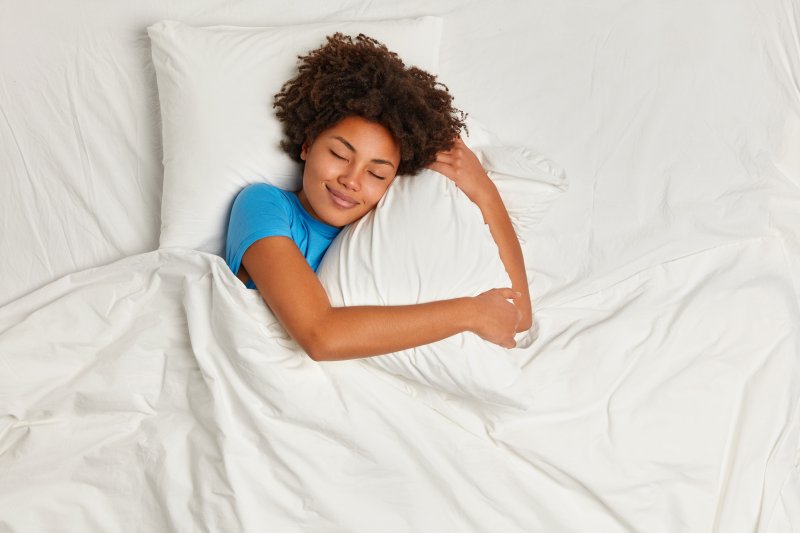
Thanks to all the online craze surrounding weighted blankets, you might be considering using one. People claim it’s a lifesaver for those with ADHD, ASD, and sensory processing disorders by reducing anxiety and easing their restless minds. Weighted blankets have caught the interest of the general public because they promise to improve anyone’s quality of sleep. However, some research suggests that it could be particularly helpful for people with obstructive sleep apnea. Read on as we discuss how a weighted blanket can benefit those with sleep disorders.
How Do Weighted Blankets Work?
Weighted blankets have an interior lining that’s filled with evenly distributed weight. They apply light, even pressure over your entire body, creating the soothing sensation of being held. While sleeping under one, most people describe it as being held in a gentle hug. Weighted blankets exert what’s known as “deep pressure stimulation”. Studies show that the effects of this pressure can reduce stress, lower anxiety, and increase the level of calm.
The Benefits of Weighted Blankets
Deep pressure stimulation from weighted blankets can cause hormonal changes in the body that are beneficial for sleep.
Stimulate Oxytocin
Oxytocin is what stimulates feelings of attachment, closeness, calmness, and relaxation. It plays a crucial role in regulating your sleep-wake cycle. The hormone levels increase during sleep, usually peaking during longer periods of deep REM sleep. Studies found that increasing oxytocin during sleep can increase sleep time and sleep quality, meaning it can reduce the symptoms of obstructive sleep apnea.
Decrease Cortisol
Deep pressure stimulation can reduce cortisol levels, a hormone that plays a key role in the body’s stress response. Cortisol can make it difficult for people to fall asleep and stay asleep throughout the night. In the evening, your body’s cortisol levels naturally go down as it gets ready for sleep – but stress and anxiety can make them go up again. Luckily, a weighted blanket can help your body suppress the release of this hormone.
Increase Serotonin
Research shows that deep pressure stimulation can also increase serotonin, a “feel-good” hormone that helps keep you in a relaxed state. The hormone helps stabilize your mood and contributes to regulating sleep-wake cycles. Inadequate serotonin levels can lead to depression, anxiety, and disrupted sleep. Thus, keeping the hormone at healthy levels can encourage a good night’s sleep.
If you’re struggling with sleep apnea, consider using a weighted blanket to promote better sleep quality. It doesn’t hurt to try one out!
About the Author
Dr. Pamela West has an impressive career that spans well over three decades. She earned her dental doctorate at the University of Southern California Dental School. Dr. West is passionate about helping patients smile with confidence and enjoy a more restful sleep. If you think you may have sleep apnea, contact Dr. West and her team for treatment. They’ll be there every step of the way, offering support and assistance as needed. Visit our website or call (702) 844-6226 to schedule an appointment.
